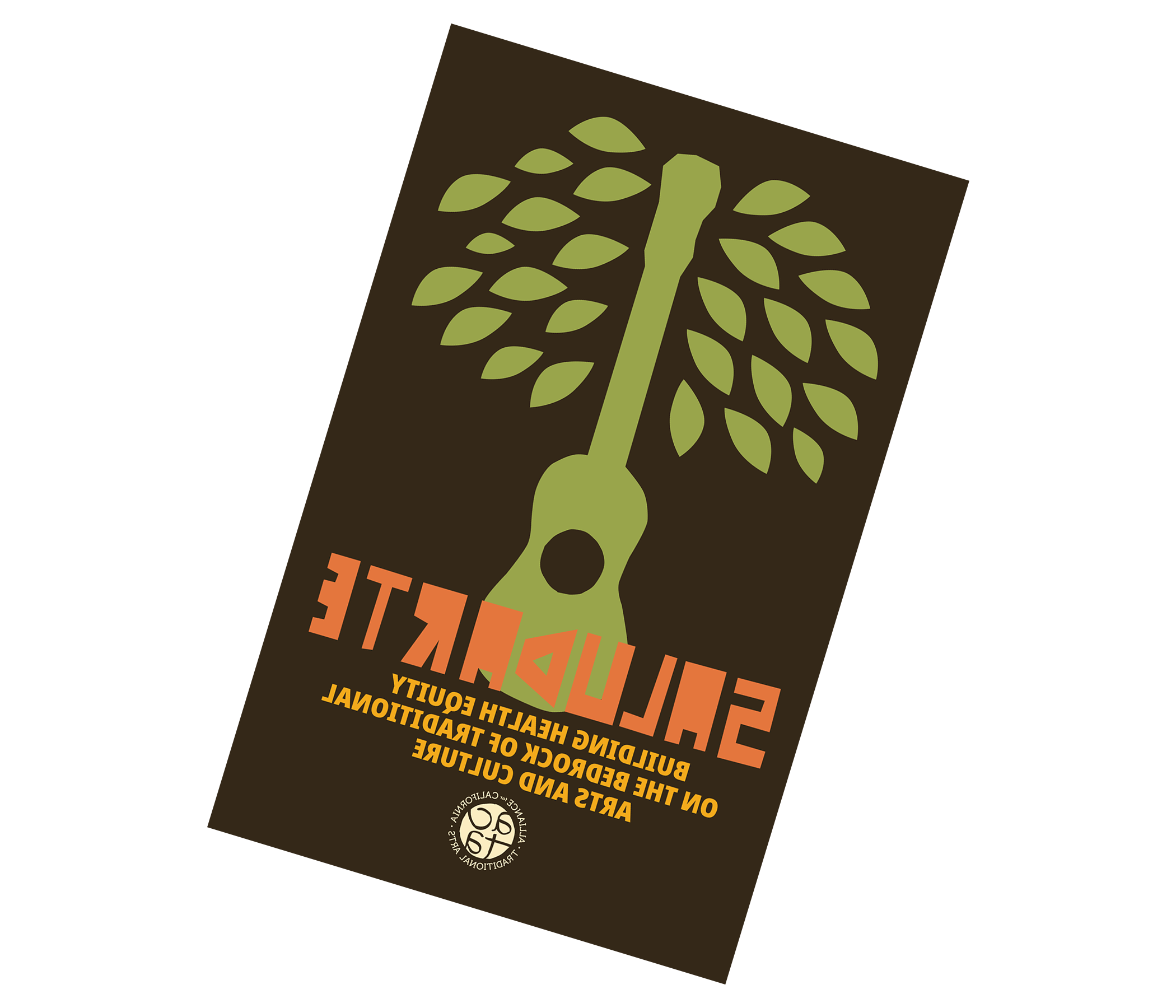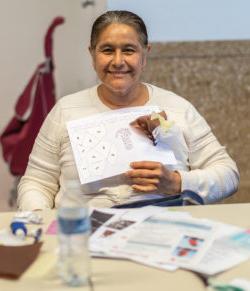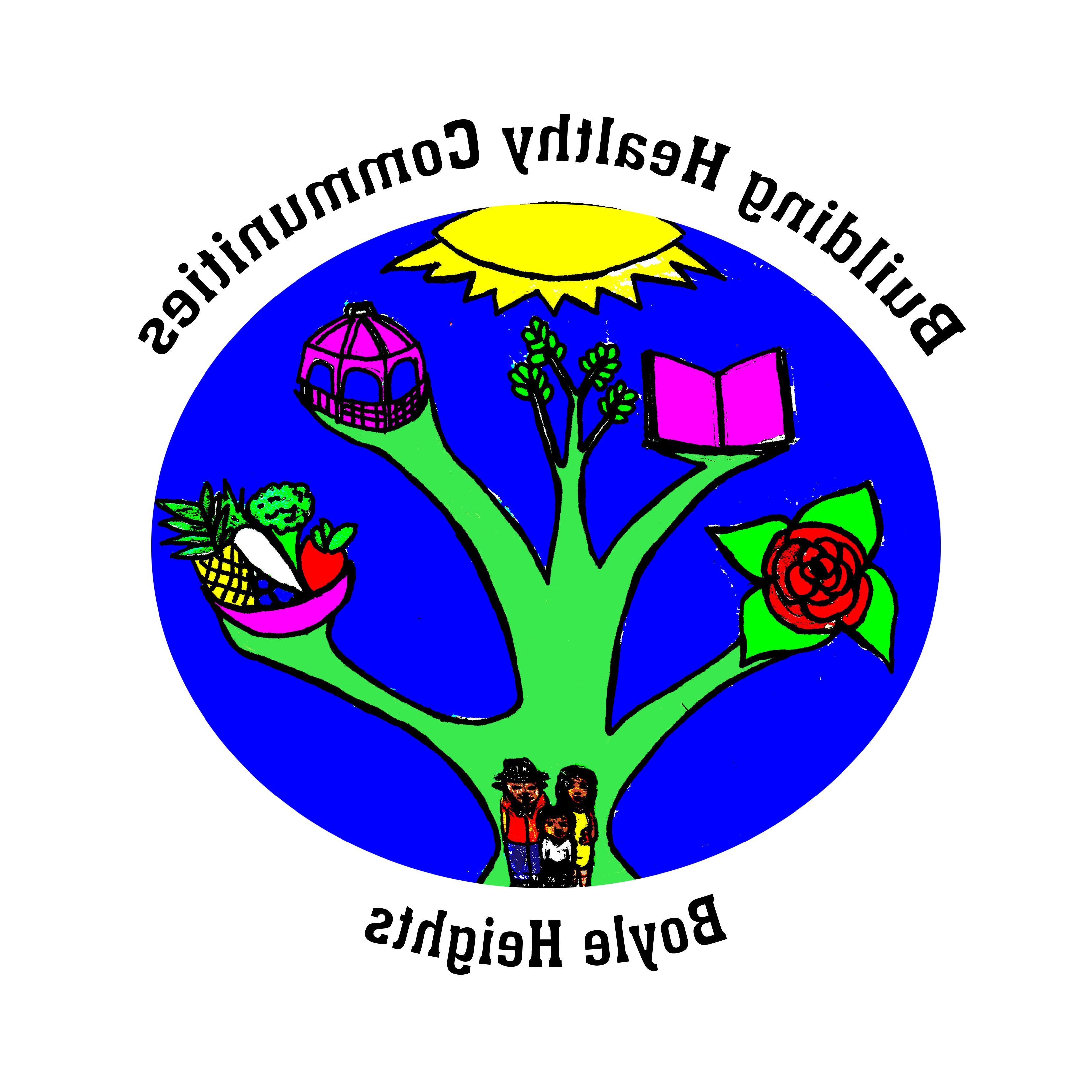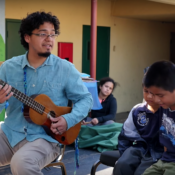建立健康社区(BHC)是一个10年的州范围倡议 加州养老 解决加州14个社区的健康不平等问题. 自2011年以来, ACTA将传统艺术家和博伊尔高地的社区成员聚集在一起, 默塞德, 圣安娜, 和东科切拉山谷,为连接打开通道, 反射, 通过传统艺术进行动员.
 参加2019年BHC在洛杉矶举办的支持“投资青年”活动的参与者. 摄影:Timo Saarelma.
参加2019年BHC在洛杉矶举办的支持“投资青年”活动的参与者. 摄影:Timo Saarelma.
BHC计划的重点是通过资助州内14个被健康不平等摧毁的社区的非营利组织,在当地建立权力. 该基金会对这些社区进行了投资,以促进在三个不同领域的政策变革方面的合作: 学校, 社区, 和 预防性的健康. 以博伊尔高地为例, 中产阶级化对社区产生了哪些影响, 增加了第四个区域: anti-displacement.
ACTA通过动员人们参与传统艺术实践,作为建设健康社区的一种方式,对这一倡议作出了贡献. 冰球突破试玩网站表明,通过艺术实践聚集可以增强社区的应变能力和足智多谋, 深化集体民主协商决策能力建设, 使个人作为艺术家和活动家磨练和完善他们的创造力和鉴赏力. 人们学习新技能, 发展新的人际关系, 当他们建造祭坛的时候,就会有解决问题的信心, 参加集体创作歌曲讲习班, 在剧院演出, 写一本mg冰球突破豪华版试玩网站他们附近文化宝藏的书, 或者组织聚会制作壁画, 被子, 绣花上衣, 枕头, 和围裙, 这只是ACTA所播种的几个项目.
艺术帮助我们倾听, 打破这些枷锁, 释放一些我们背负了很久的东西.”
-胡安娜·梅纳,构建健康社区ACTA艺术家研究员,博伊尔高地,2019年
mg冰球突破豪华版试玩网站, 与BHC的工作始于一个过程,即确定文化承载者和传统艺术从业者,他们已经是社区的一部分,并在那里工作了一段时间. 我们通过ACTA做到了这一点 Participatory Cultural资产映射 召集了一个当地特别小组来支持我们收集调查问卷来确定人群, 的地方, 事件, 这些组织在文化上对我们工作的四个社区的身份具有重要意义. 这些资产映射方法尊重并创造了可见的文化财富,这些文化财富在一个特定的社区中具有价值,并培育了归属感的空间——这是社会变革和争取种族平等的必要先决条件.
以博伊尔高地为例, ACTA继续在初始资产地图的基础上,动员当地艺术家成为社区领袖. 超过100个文化瑰宝被社区提名, 具有文化知识和感性的艺术家与这个特定的社区一起工作,浮出水面. ACTA安排这些艺术家和文化载体在不同的六六健康运动中领导一系列讲习班,重点是通过学校改善健康, 社区, 的预防措施, 和anti-displacement努力. 讲习班发展成为正式的艺术家奖学金,将一个专注于一个领域的艺术家奖学金和一个来自社区的与艺术家奖学金一起工作和学习的学员配对.
近十年来,ACTA提供了 艺术家有空间、资源和支持或者让他们行使他们的权力 实验荷兰国际集团(ing) 在他们的实践 to 开发红外的订婚 方法.







